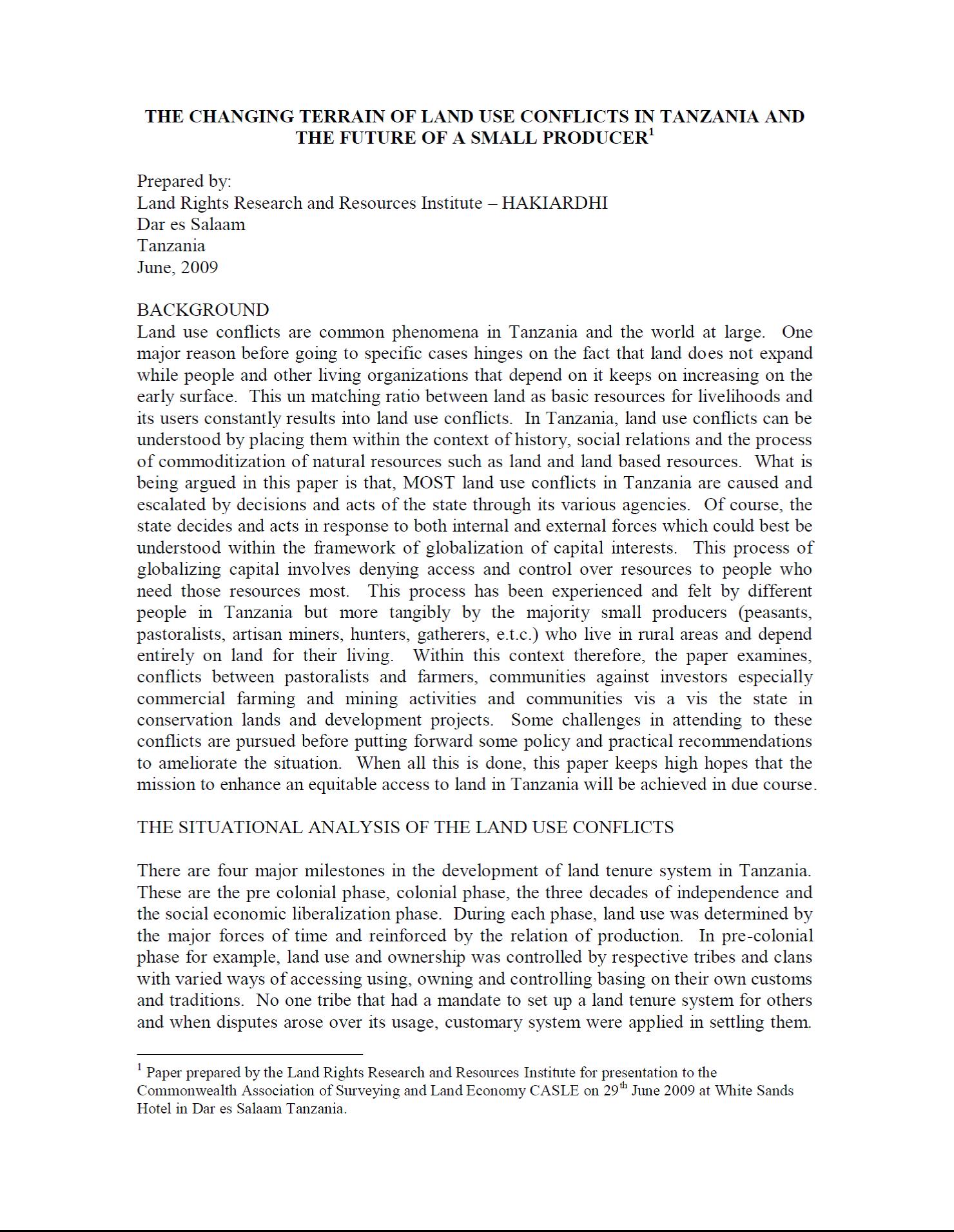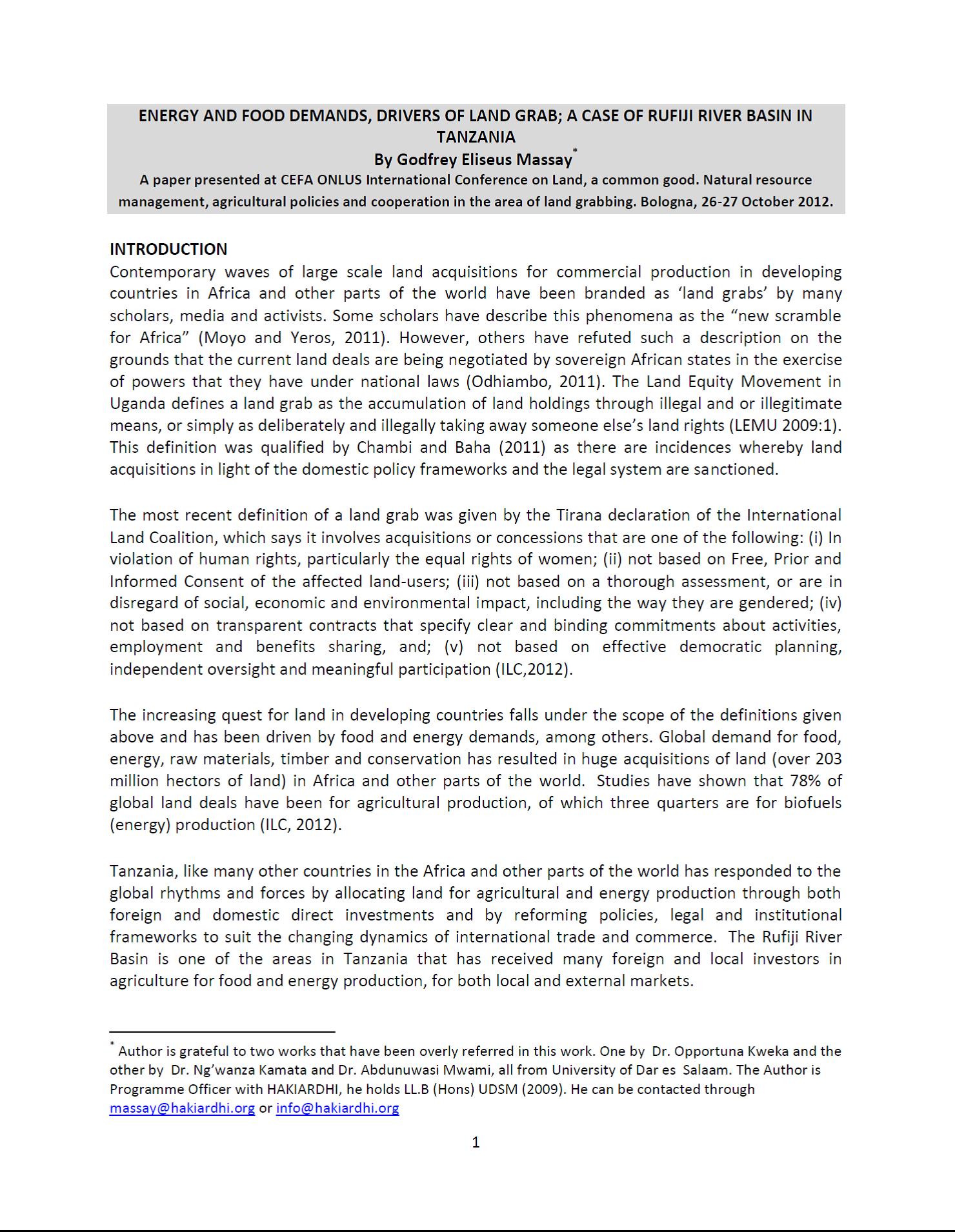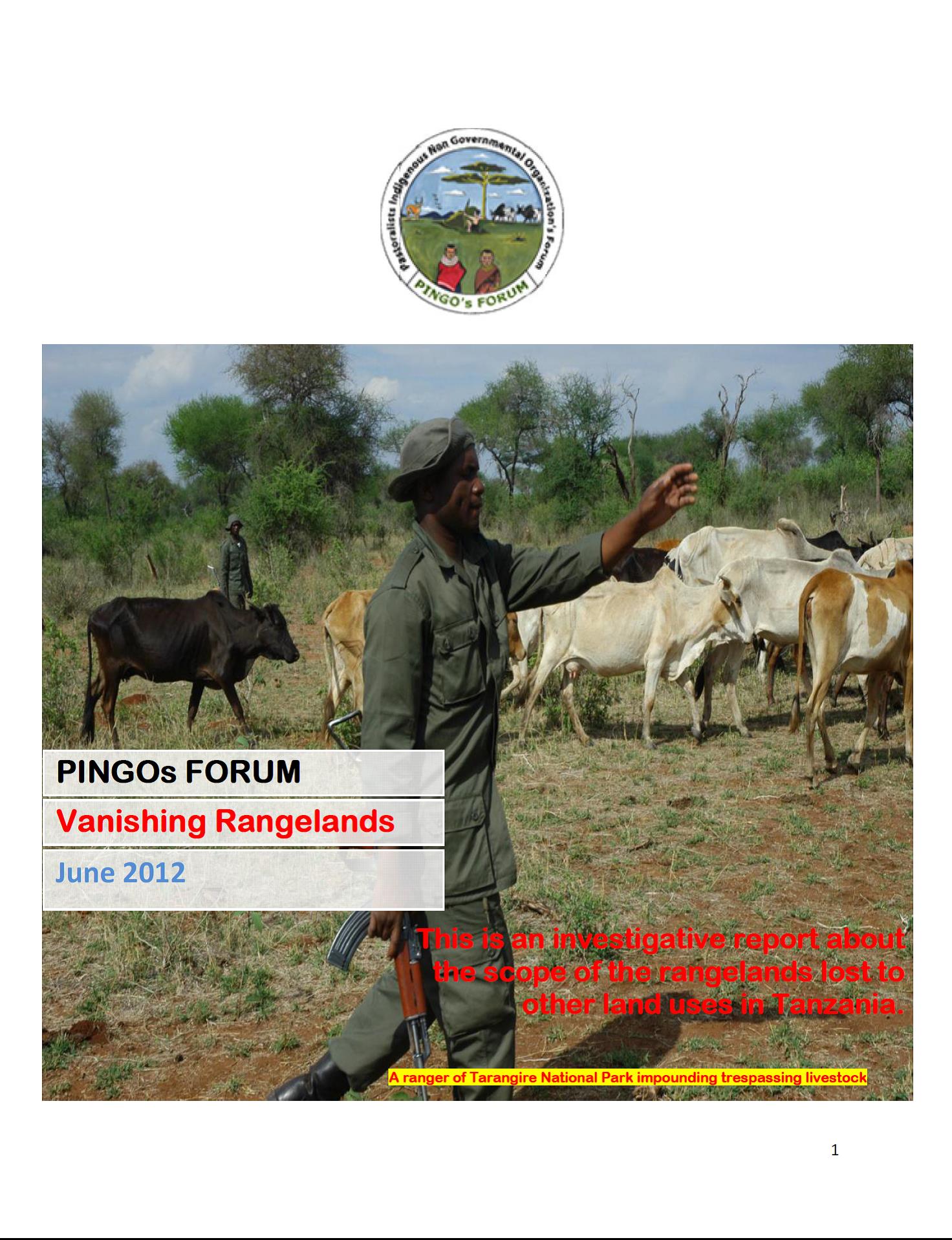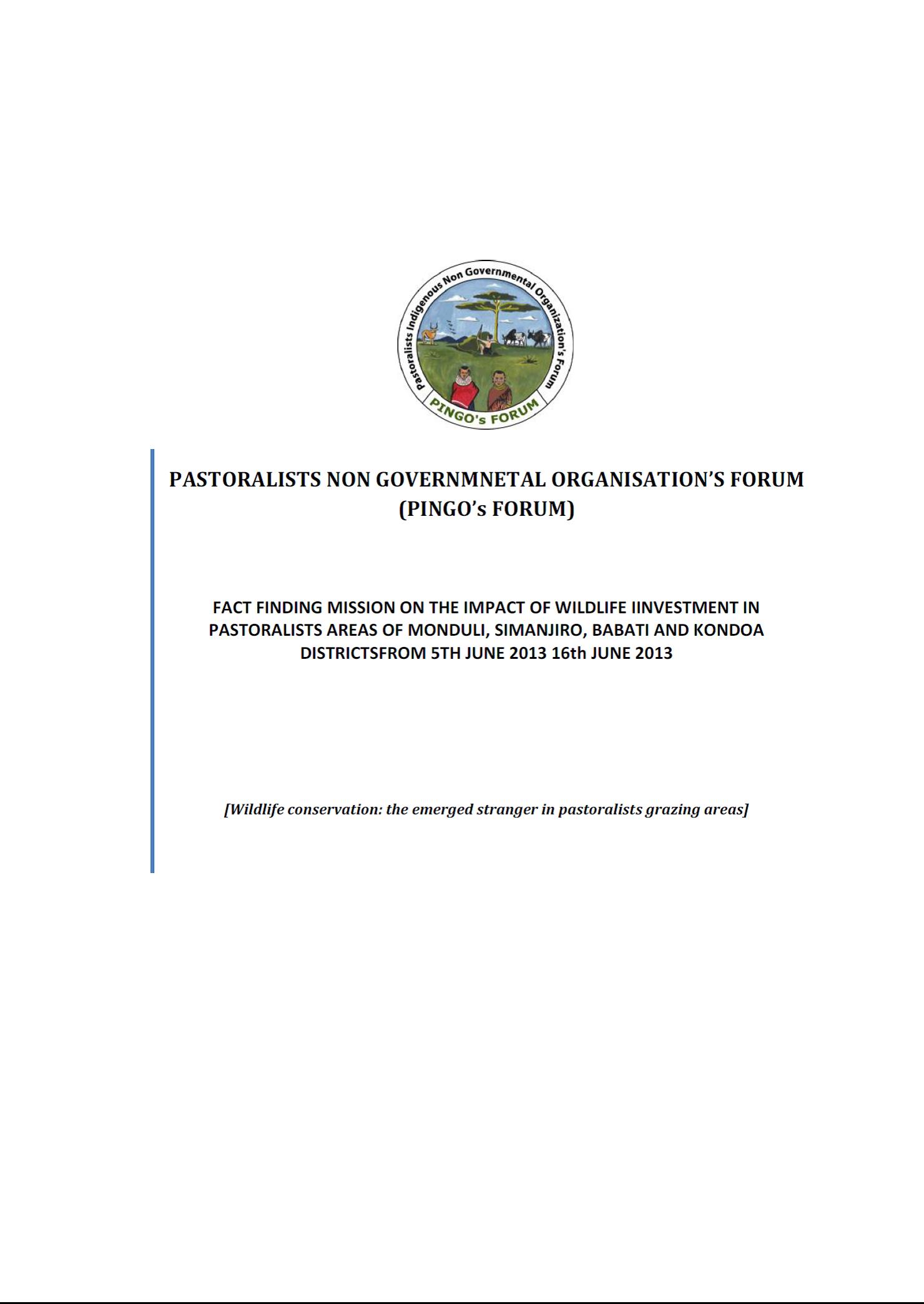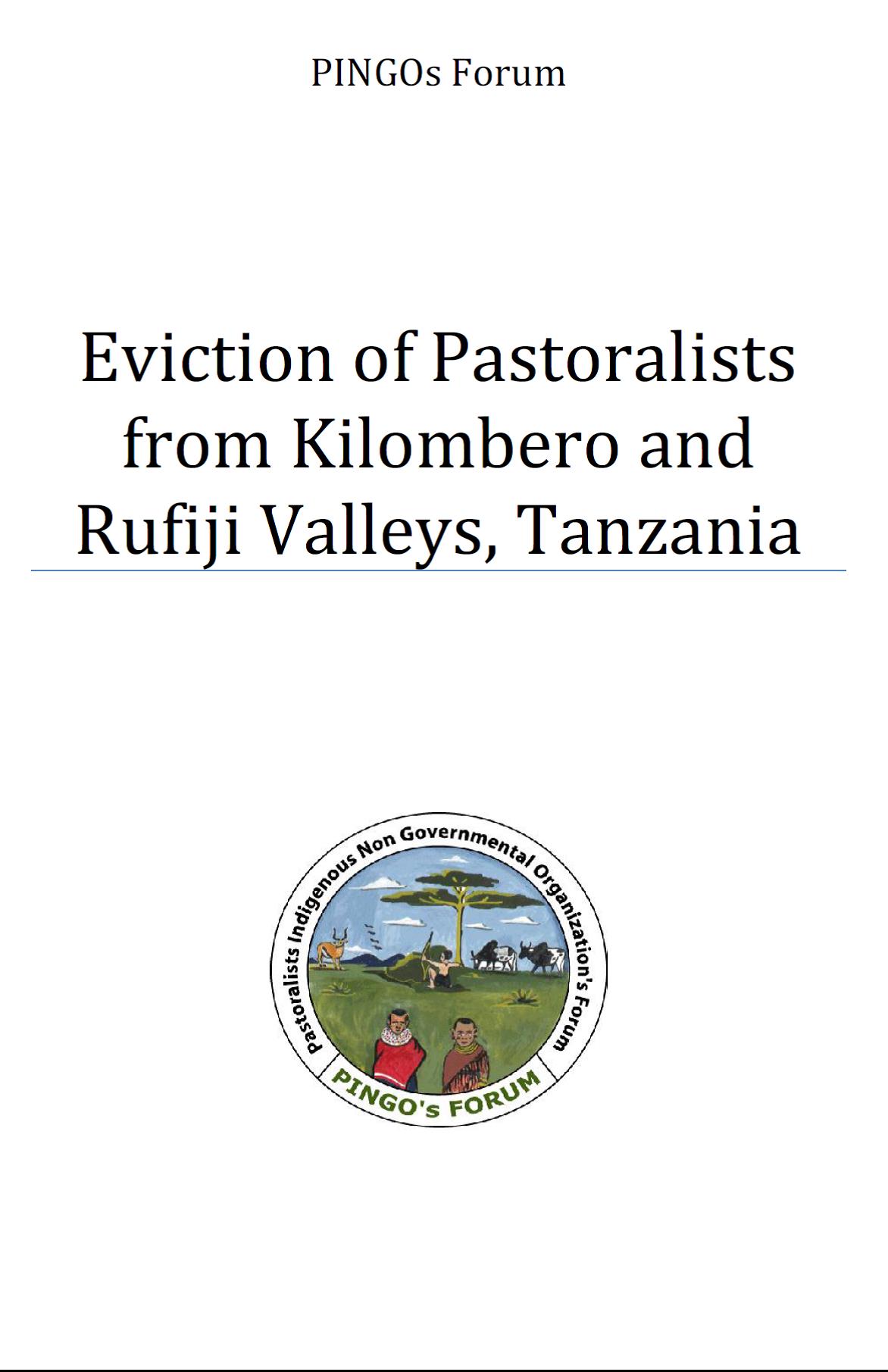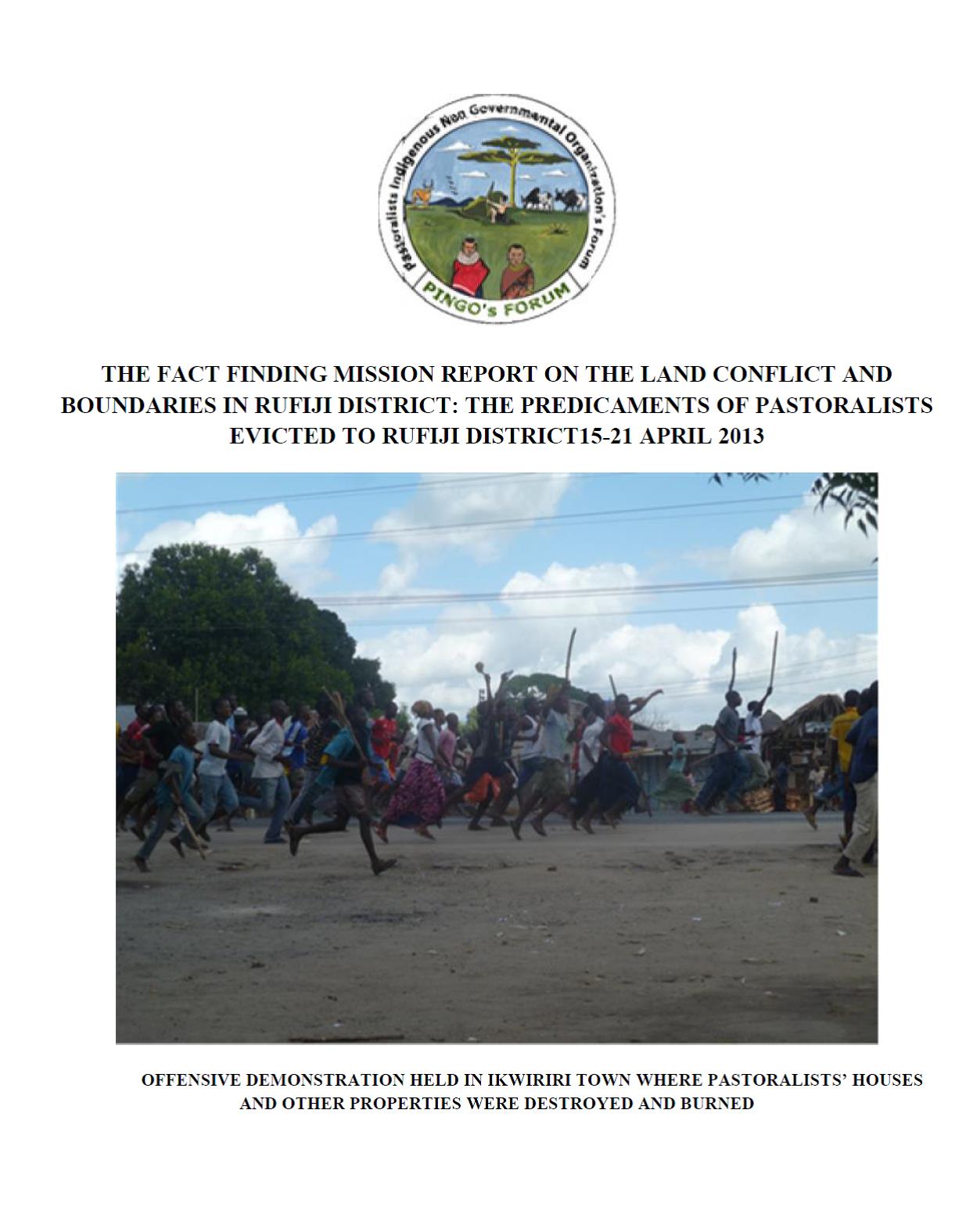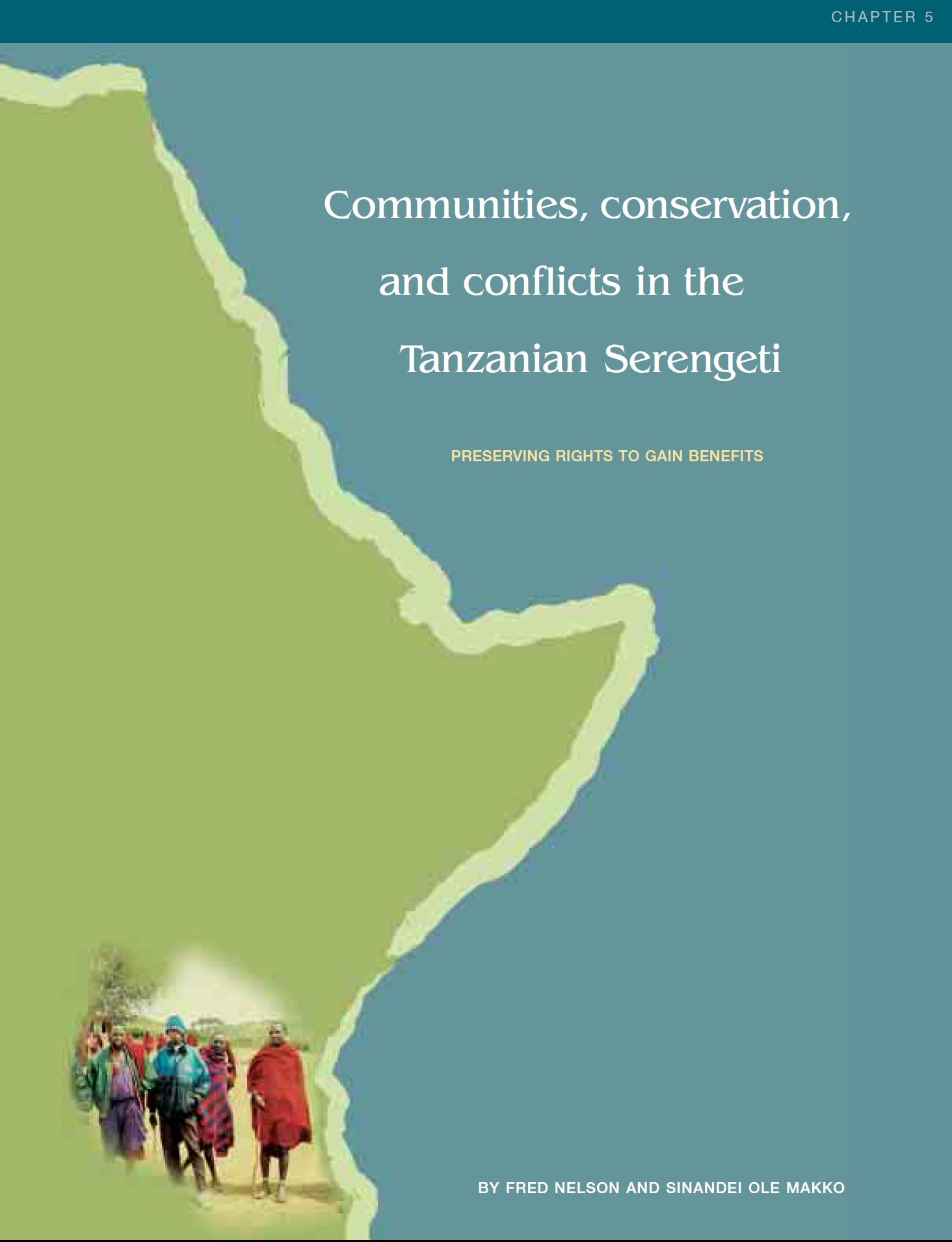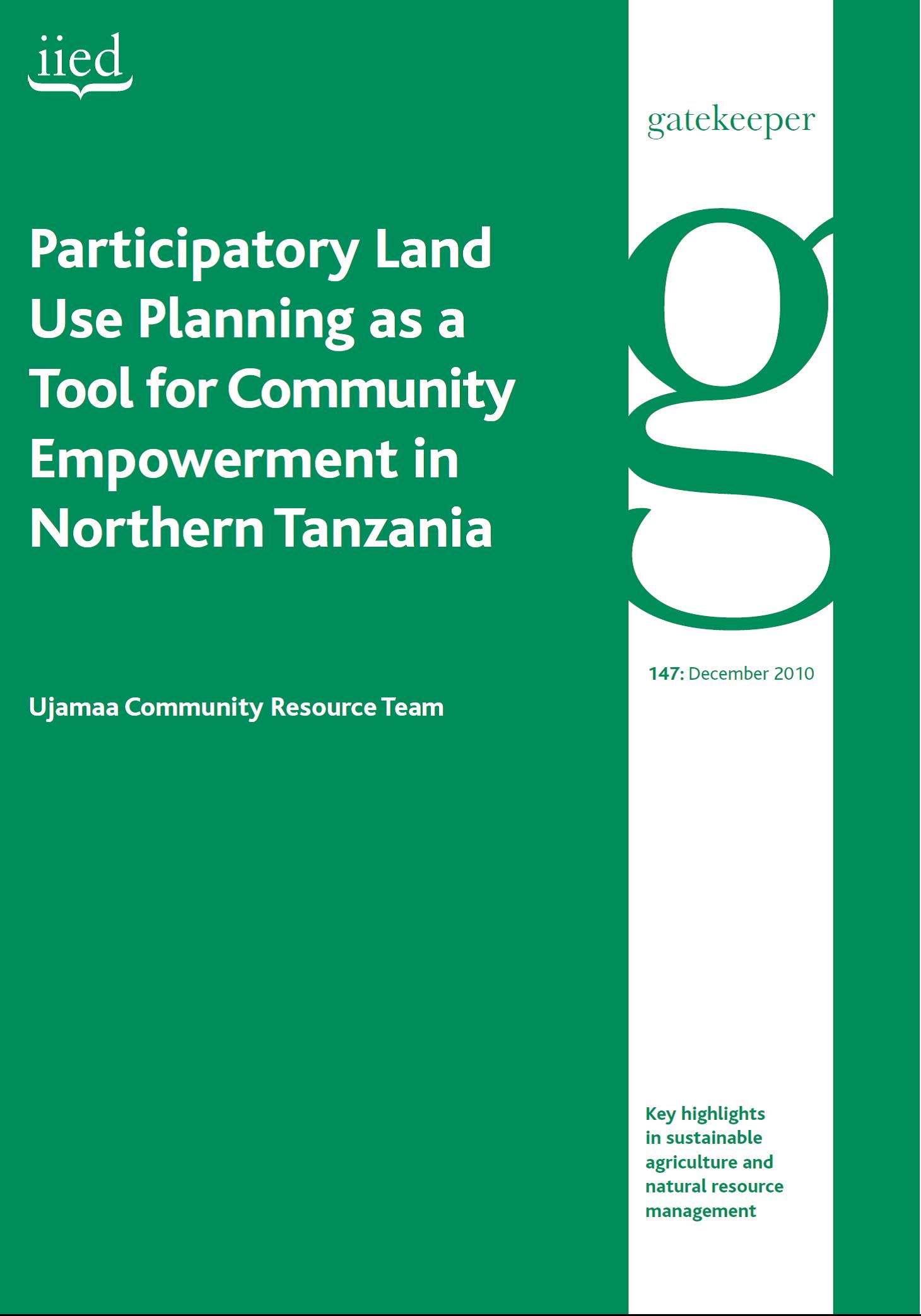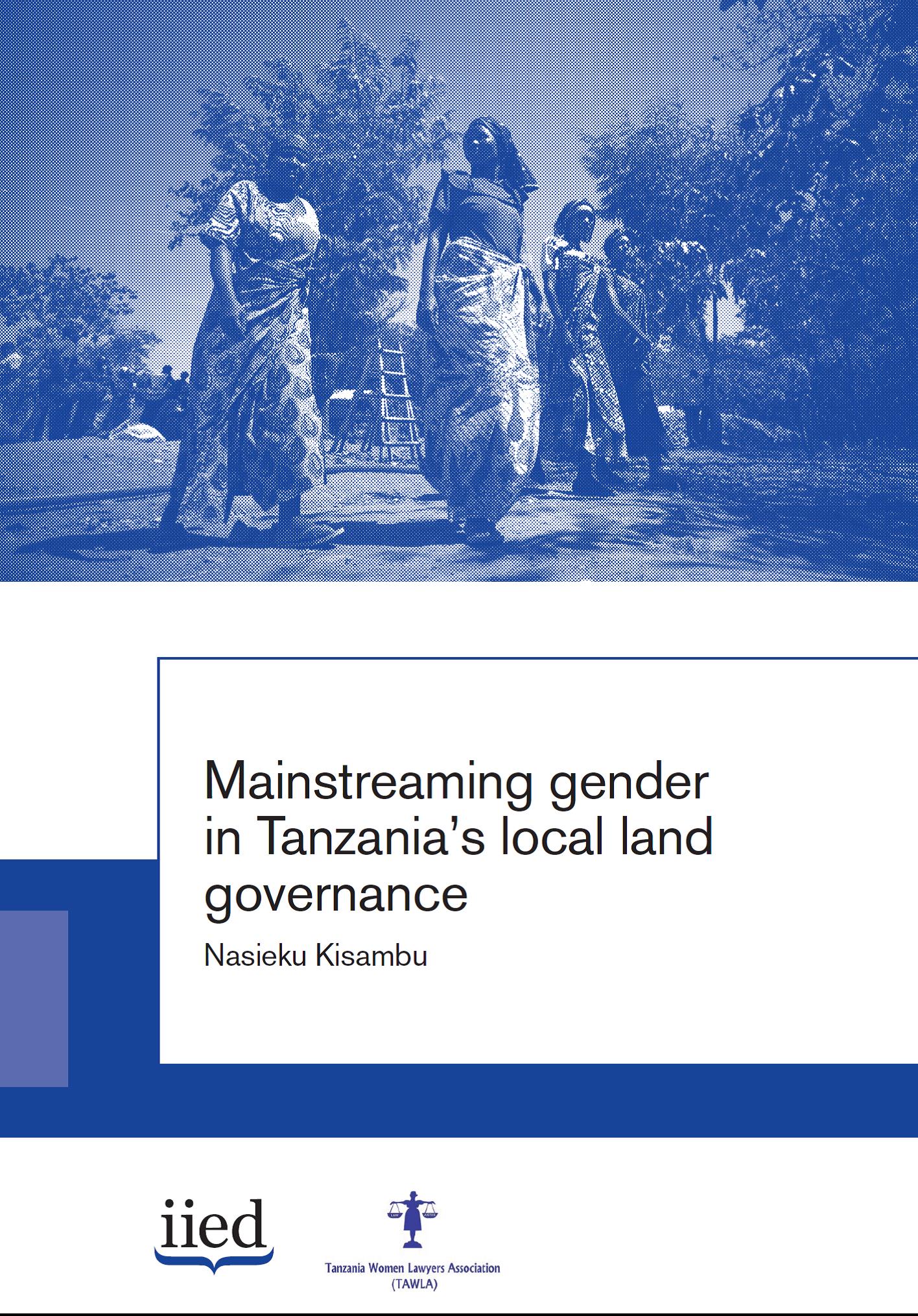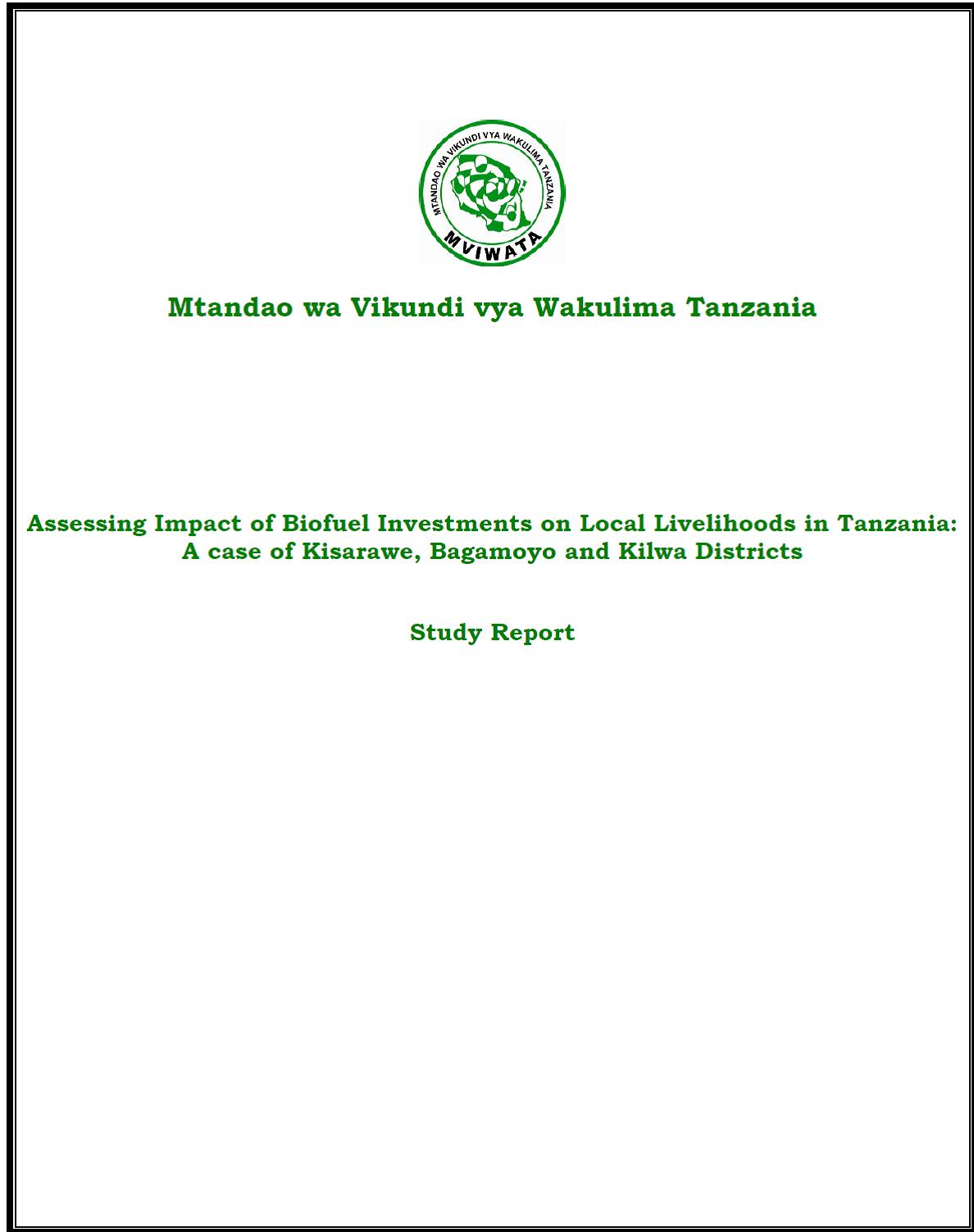The Changing Terrain of Land Use Conflicts in Tanzania and the Future of a Small Producer
Land use conflicts are common phenomena in Tanzania and the world at large. One major reason before going to specific cases hinges on the fact that land does not expand while people and other living organizations that depend on it keeps on increasing on the early surface. This un matching ratio between land as basic resources for livelihoods and its users constantly results into land use conflicts.

